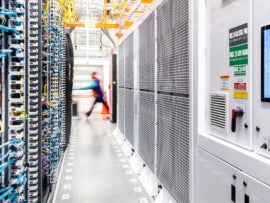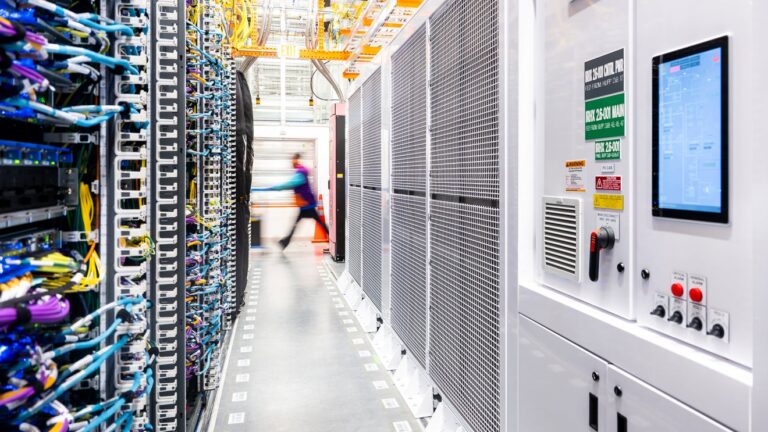
Amazon has committed to spending AUD$20 billion (US$13 billion) on data centre infrastructure in Australia over the next four years. The investment is the largest technology commitment of its kind ever publicly announced in the country.
To meet the energy requirements of its expanding infrastructure, Amazon plans to develop three solar projects in Victoria and Queensland with a combined capacity of more than 170 MW. The projects will be operated by Danish renewable energy firm European Energy.
The expansion is intended to support surging demand for artificial intelligence and cloud computing services in Australia. Analysts predict that automation technologies will contribute up to AU$600 billion annually to Australia’s GDP by 2030, while cloud computing will contribute AU$81billion between 2024 and 2029.
The move follows a similar US$20 billion investment Amazon announced in Pennsylvania last week, as part of its global push to scale up AI-ready infrastructure. This contrasts with rival firms that have paused or scaled back their data centre plans amid tariff uncertainty and rising infrastructure costs. For example, tariffs proposed by US President Donald Trump could drive up tech costs globally and dampen AI demand, Jeff Bezos’ company continues to build.
Amazon wants Australia to realise its innovation potential
Amazon says that its data centre investments will drive innovation by placing AI and cloud capabilities in the hands of Australian businesses, allowing them to modernise, increase productivity, and scale up while meeting local data residency and regulatory requirements. It will also continue to support AI and digital skills education programs, so that businesses can reap the benefits of the technology and individuals are qualified for the new jobs it will create.
Despite strong global competitiveness rankings, Australia has struggled with low entrepreneurship rates, ranking third from the bottom out of 64 countries for entrepreneurship in 2023. Analysts said the underlying reason for this was the lack of economic complexity; the number and complexity of products exported were simply not up to world standards. Amazon may hope to be the tech giant to help the country realise its potential.
More data centres could boost Amazon’s market dominance and raise energy prices
However, not everyone may welcome Amazon’s growing entrenchment in Australia’s cloud and AI sectors. A 2023 Senate inquiry heard evidence that Amazon Web Services’ dominant market position made it difficult for smaller businesses to negotiate fair contract terms and pricing. It also enabled the company to issue complex contracts and billing structures that obscure usage and switching costs.
AWS denied this, arguing it has numerous competitors, but faces similar accusations in the UK. Cian Byrne, a CTO and software developer who provided evidence to the inquiry, described the Amazon announcement as “bittersweet.”
“From a personal view and perspective, the cloud is too expensive for what you get in certain use-cases,” he wrote on LinkedIn. “I’ve seen business(es) disappear because of their cloud bills.”
There are also concerns about the additional pressure the new data centres will put on Australia’s energy supply, potentially causing prices to skyrocket. Last year, investment bank UBS predicted that evening peak demand could drive wholesale power price spreads up to 70% higher by 2030, according to The Guardian.
Outages could become a problem, too, with the Australian Energy Market Commission considering new rules to ensure grid stability amid surging AI-driven energy consumption. Amazon is taking steps to prevent this outcome by constructing solar farms that can support its new infrastructure.
To help offset its impact, Amazon says it is scaling up its renewable portfolio. With eight existing solar and wind projects already operating across New South Wales, Queensland, and Victoria, the addition of three new solar farms is expected to raise the company’s total renewable output in Australia to more than 1.4 million megawatt hours annually — enough to power approximately 290,000 homes.
AWS CEO Matt Garman said in a statement: “We’re proud to be expanding our world-class data center infrastructure, bringing more renewable energy projects online, and supporting the country’s vision to be a global AI leader. AI is a once-in-a-generation transformation, and Amazon is pleased to be empowering all Australians to innovate at scale through this investment.”
Read our coverage of Amazon’s $20 billion data center expansion in Pennsylvania to learn more about its global AI infrastructure strategy.

